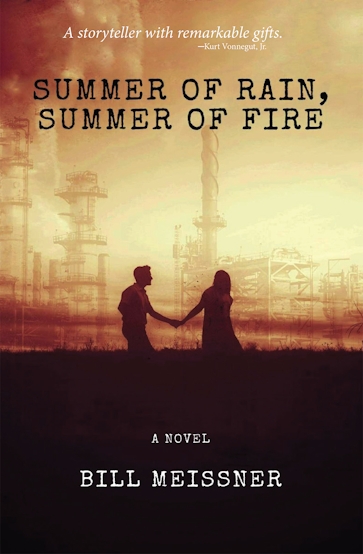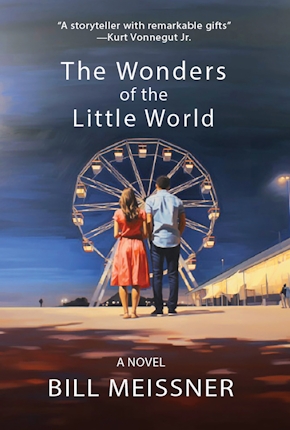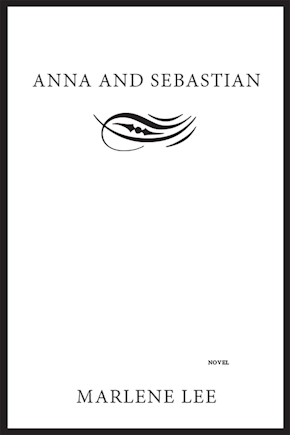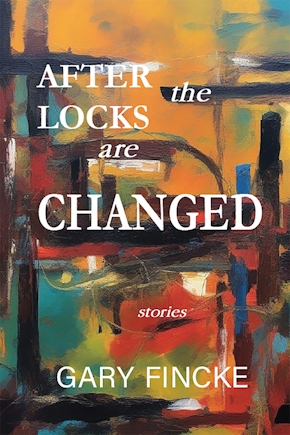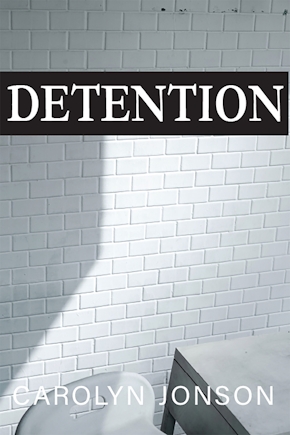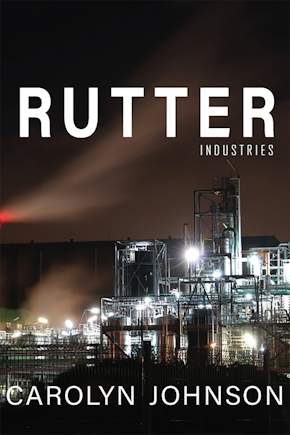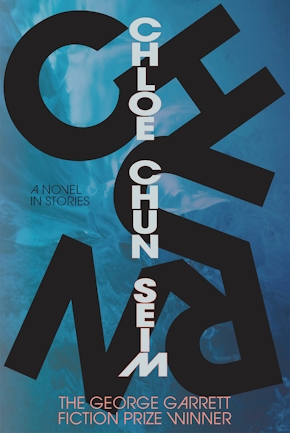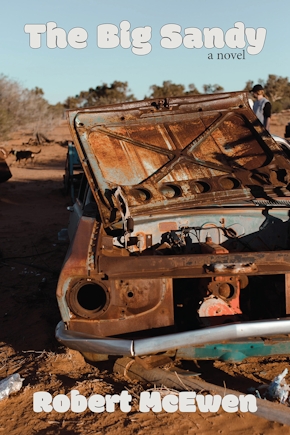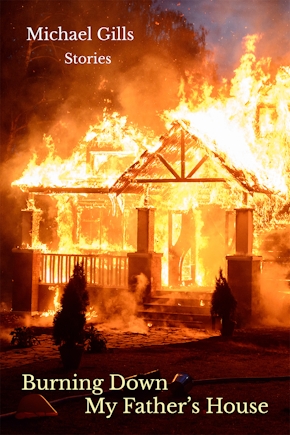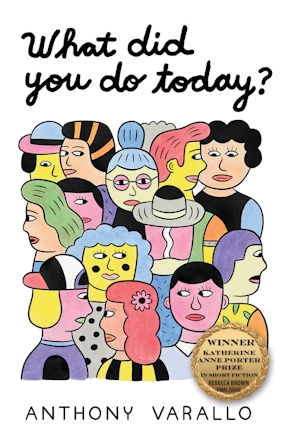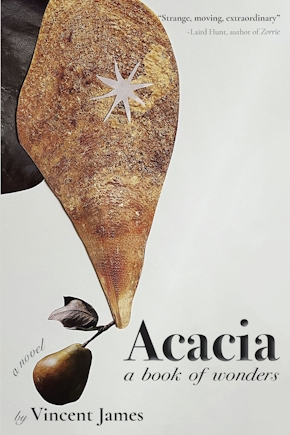Summer of Rain, Summer of Fire
978-1-62288-936-5 Paperback
6 x 9 x 0 in
230 pp.
Pub Date: 11/22/2022
Available
BUY NOW
- Paperback $22.00
With its roots in a true but little-known incident involving the aerial bombing of a Midwest powder production plant in 1969, Summer of Rain, Summer of Fire is a family conflict that illuminates the struggle between conservative and liberal, between conformity and independent thought. It portrays the effects of a war that was fought not only on foreign soil, but in living rooms in the middle of America. Above all, Summer of Rain, Summer of Fire is an illumination of the timeless conflicts on the battlefield of the human heart.
It’s the spring of 1967, during the turbulent protest days of the Vietnam War. Eighteen-year-old Phil Keyhoe takes a summer job mowing lawns at the Strongs Ammunition Plant, a place that manufactures powder for use in the Vietnam War. His father, Karl, a powerful security supervisor at the plant and World War II hero, has arranged the job for Phil. When Phil’s father faces a medical crisis, Phil is forced to put his college plans with Mariah, a rebellious new love interest, on hold and work full time in the gunpowder production lines. Meanwhile, Mariah joins a radical anti-war group and becomes involved with its charismatic leader. As her commitment against the war intensifies, she plans to orchestrate a major protest against the Strongs Plant. Phil is caught in a web of indecision and must choose between his loyalty to his father and his feelings for Mariah. The choice he finally makes not only affects him, but his father and mother, the plant, and the entire town.
Although the novel is historical, it parallels much of the social unrest and divisiveness that exists in present-day America.
“This novel captures those small, powerful details that combine to produce an indelible image of one of the most wrenching eras in our nation’s history. Bill Meissner has the storyteller’s gift for creating living characters, living speech, living emotions, living drama. The novel will not only entertain—in the highest sense—but will also touch the reader’s heart.”
--Tim O’Brien, National Book Award winner and author of The Things They Carried
“A storyteller with remarkable gifts.”
-- Kurt Vonnegut, Jr.
At the center of this compelling novel is the Keyhoe family— stern Karl at the helm, sensitive teenage son, Phil, and the quietly heroic and eminently likeable Frances, wife and mother, holding the family together—each of them trying to do what’s right, motivated by duty and love. Those tensions propel this beautifully crafted and, at times, gently funny novel—a story of families and community in conflict, cultural upheaval, and, ultimately, hope for change.
--Shannon Olson
Author of Welcome to My Planet and Children of God Go Bowling
From the opening explosion to the ending, Meissner’s new novel is full of surprises as it delivers one of the best stories ever written about the most divisive period in modern American culture. As he explores the fractures of our families and country from the war in Vietnam, he paints the anguish and heartbreak we are still struggling to heal from. Although the novel is historical, it reverberates with contemporary politics that have set us against each other. In brilliant prose, Meissner evokes both the beauty and the cruelty that are hallmarks of that time of liberation and challenging questions. This is Meissner’s finest portrait of the American heartland, torn, broken and resilient in its embrace of ordinary lives in the midst of extraordinary times.
--Jonis Agee, author of The Bones of Paradise
The compassion, sensitivity, and quiet exuberance of Bill Meissner's prose and storytelling abilities combine
to make Summer of Rain, Summer of Fire a deeply moving and unforgettable tale. Set is small-town Midwestern
America in the late 1960s, the novel both defines and transcends time and place with a grace and originality I find rare and
utterly compelling. Sentence by sentence, detail by detail--a writer at the height of his powers.
--Jack Driscoll, author of 20 Stories: New and Selected
It’s the spring of 1967, during the turbulent protest days of the Vietnam War. Eighteen-year-old Phil Keyhoe takes a summer job mowing lawns at the Strongs Ammunition Plant, a place that manufactures powder for use in the Vietnam War. His father, Karl, a powerful security supervisor at the plant and World War II hero, has arranged the job for Phil. When Phil’s father faces a medical crisis, Phil is forced to put his college plans with Mariah, a rebellious new love interest, on hold and work full time in the gunpowder production lines. Meanwhile, Mariah joins a radical anti-war group and becomes involved with its charismatic leader. As her commitment against the war intensifies, she plans to orchestrate a major protest against the Strongs Plant. Phil is caught in a web of indecision and must choose between his loyalty to his father and his feelings for Mariah. The choice he finally makes not only affects him, but his father and mother, the plant, and the entire town.
Although the novel is historical, it parallels much of the social unrest and divisiveness that exists in present-day America.
“This novel captures those small, powerful details that combine to produce an indelible image of one of the most wrenching eras in our nation’s history. Bill Meissner has the storyteller’s gift for creating living characters, living speech, living emotions, living drama. The novel will not only entertain—in the highest sense—but will also touch the reader’s heart.”
--Tim O’Brien, National Book Award winner and author of The Things They Carried
“A storyteller with remarkable gifts.”
-- Kurt Vonnegut, Jr.
At the center of this compelling novel is the Keyhoe family— stern Karl at the helm, sensitive teenage son, Phil, and the quietly heroic and eminently likeable Frances, wife and mother, holding the family together—each of them trying to do what’s right, motivated by duty and love. Those tensions propel this beautifully crafted and, at times, gently funny novel—a story of families and community in conflict, cultural upheaval, and, ultimately, hope for change.
--Shannon Olson
Author of Welcome to My Planet and Children of God Go Bowling
From the opening explosion to the ending, Meissner’s new novel is full of surprises as it delivers one of the best stories ever written about the most divisive period in modern American culture. As he explores the fractures of our families and country from the war in Vietnam, he paints the anguish and heartbreak we are still struggling to heal from. Although the novel is historical, it reverberates with contemporary politics that have set us against each other. In brilliant prose, Meissner evokes both the beauty and the cruelty that are hallmarks of that time of liberation and challenging questions. This is Meissner’s finest portrait of the American heartland, torn, broken and resilient in its embrace of ordinary lives in the midst of extraordinary times.
--Jonis Agee, author of The Bones of Paradise
The compassion, sensitivity, and quiet exuberance of Bill Meissner's prose and storytelling abilities combine
to make Summer of Rain, Summer of Fire a deeply moving and unforgettable tale. Set is small-town Midwestern
America in the late 1960s, the novel both defines and transcends time and place with a grace and originality I find rare and
utterly compelling. Sentence by sentence, detail by detail--a writer at the height of his powers.
--Jack Driscoll, author of 20 Stories: New and Selected
About the Author
Published by Stephen F. Austin University Press
